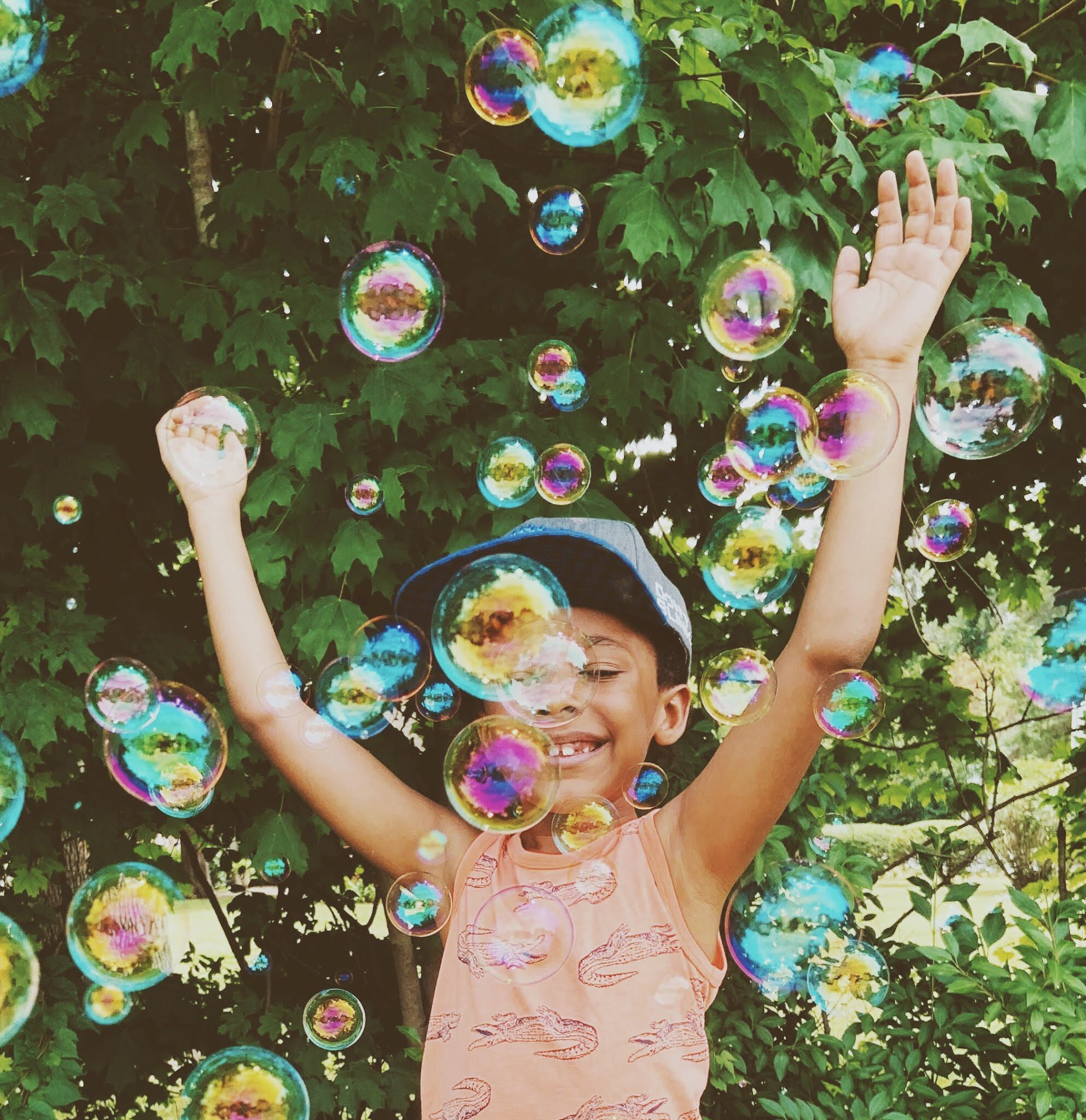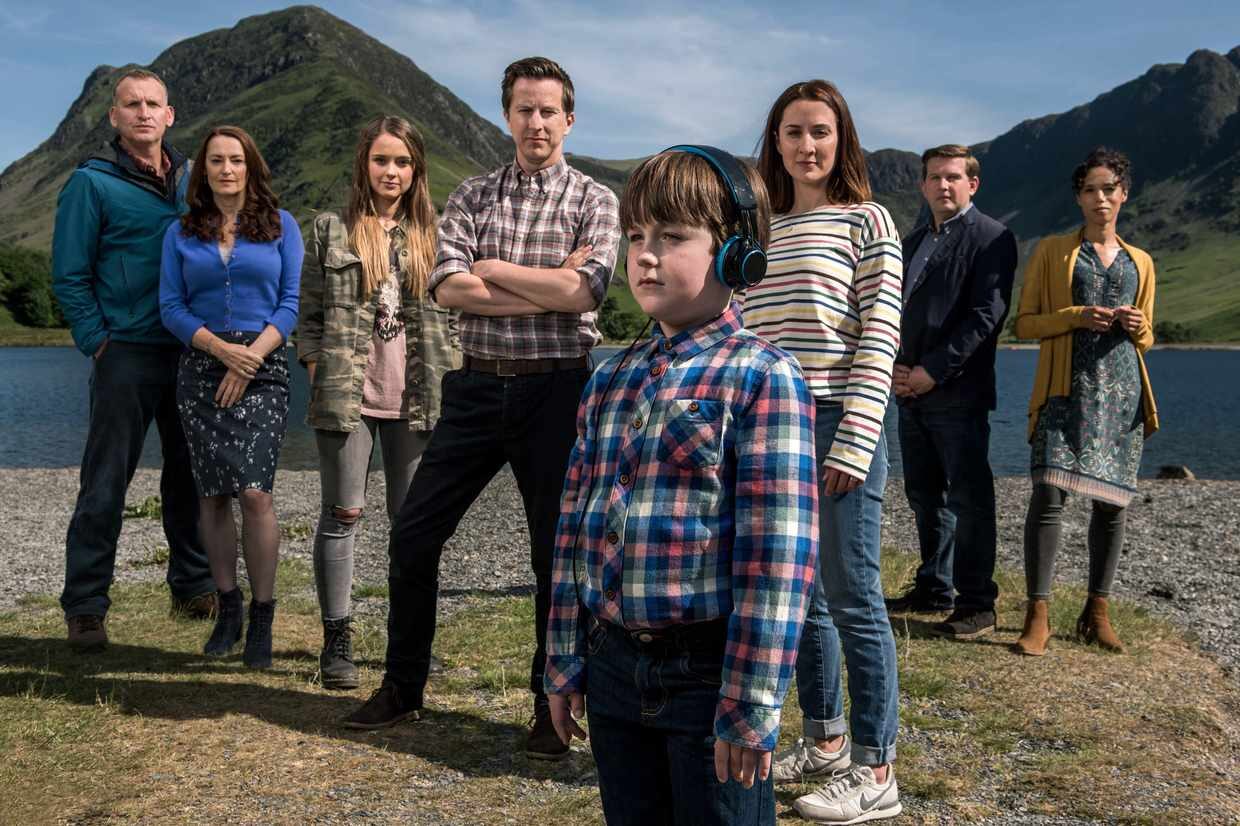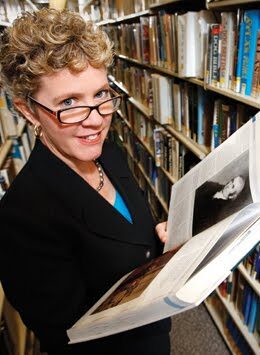Sparkle enjoys Pablo, she likes that he’s an autistic child. She is happy to hear that autistic people voiced the characters and likes the animation.
Tag: media
How is joy usually characterized? The absence of sadness? Unbridled gladness and glee? That is Knox, every. single. day.
Elizabeth Bartmess elizabethbartmess.com This is a three-part series. Part I explores autistic interiority and neurology. Part II explores Diversity in Autistic Characteristics and Demographics. In Part I of this series, I talked about how good representation of autistic characters shows interiority—characters’ inner experiences and reasons for doing things—and how various aspects of autistic neurology affect our experiences, particularly sensory differences, language and speech differences, social skills and abilities, and our ability to strongly enjoy specific interests. I also briefly mentioned executive function, the usefulness of routines and structures, motor difficulties, and a few other common differences, plus some common co-conditions, and discussed how having these differences, and having to interact with others surrounding them, results in our developing skills and coming to new situations with particular expectations for what will happen. In Part II, I talked about variation among autistic people: we each have a particular constellation of neurological characteristics…
Elizabeth Bartmess elizabethbartmess.com This is a three-part series. Part I explores autistic interiority and neurology. Part III explores Setting, Plot, and Character Growth. In Part I, I talked about how neurological differences affect autistic people’s internal experiences and strategies, and how we change over time as a result. Today, I’ll talk about variation in autistic characteristics, in our and others’ relationship to our diagnosis (or lack of it), and variation in demographics, as well as how others’ perceptions of us influence how they treat us, and how we change in response. On Friday, I’ll bring everything together and add some thoughts and links to advice on writing autistic characters, along with a list of some common aspects of autistic experience that are underrepresented in fiction, plus a list of all the books and short stories I’ve mentioned. Even though autistic people have many things in common, we also vary a…
Elizabeth Bartmess elizabethbartmess.com This is a three-part series. Part II explores Diversity in Autistic Characteristics and Demographics. Part III explores Setting, Plot, and Character Growth. “A lot of writers and actors seem to be able to get their heads around what autism basically is, in terms of language, sensory, and social communication difficulties. But then it’s as if they don’t know, or can’t extrapolate to, the full range of experiences that autistic people actually live. That things have happened to us, and things have happened in certain ways for us all our lives, and those things have had consequences for who we become and who we are….[T]he autistic characters [readers and viewers] are used to seeing have no depth of experience. They are people without history.” —Chavisory, at Chavisory’s Notebook This series is about what autistic characters look like when they’re written well, when they have the depth of experience…
The Main Cast of The A Word [image: A white British boy wearing headphones and looking to the side. Behind him are grouped five white adults, one white teen girl, & a black woman] Sarah Pripas Kapit @SarahKapit The most important thing to know about BBC’s drama The A Word is that it both is and is not a story about autism. On a basic level, The A Word is very much an autism story. The show’s first season told the story of the Hughes family as their young son Joe (Max Vento) was diagnosed with autism. In the second season—the focus of my review—the family continues to navigate life. Given this premise, it is remarkable how many of the show’s scenes have little or nothing to do with autism. The Hughes family, who live in rural Northern England, have a seemingly unending litany of interpersonal dramas: the marital strife,…
TPGA traditionally supports April as Autism Acceptance Month. This year, our Autism Acceptance theme is actually a question: What Do Autistic People Want, What Do Autistic People Need? The media does ask questions about autistic people — but it tends to write about autistic people, worry about autistic people, and make books and movies about autistic people — without actually consulting autistic people. If you don’t believe us, try searching the Internet for most autism topics, then observe how outnumbered autistic perspectives are — and how often buried — compared to perspectives on those same topics by parents, professionals, “experts,” or reporters. So we’re using April to ask our autistic friends and community members What Do You Want? What Do You Need? We’ll be featuring the answers all month long. If you’d like to participate, or support your child or loved one in participating, please contact us.
Paula Durbin-Westby is an Autistic advocate and an autism parent. She and her son recently appeared in the PBS P.O.V. documentary Neurotypical, a film meant to challenge public perceptions of Autistic people as well as allow Autistics to represent themselves. Paula’s portrayal in the final version of the film, however, was not at all what she was expecting. We talked with her about the distress of being publicly misrepresented as an Autistic, as well as her recommendations for filmmakers and other media types hoping to accurately portray Autistic experiences. What was your goal in agreeing to be interviewed for Neurotypical? My point was to counter pernicious media assertions that Autistics (and other people with neurobiological disabilities) are incapable of parenting and relationships. Unfortunately, I think the film’s portrayal of me has actually reinforced some of those assertions. I don’t have any problem with being shown as disabled, or as Autistic.…
Some news coverage in the last 24 hours has mentioned autism in the context of the tragedy in Connecticut, particularly referencing Aspergers or “high-functioning” autism. Talking heads have brought up the “empathy” factor when discussing autism, and I’d like to set some of the record on that straight. Empathic ability comes in two forms. One is the social ability to recognize the emotion someone is feeling by following social cues, subtle vocal fluctuations, and other nonverbal communications. Psychopaths, for example, might be quite good at reading people, at applying this cognitive empathy and then possibly exploiting it. Autistic people, on the other hand, generally tend not to be that great at this kind of recognition in non-autistic people. After all, the hallmark of autism is difficulty navigating this territory and registering the meaning of a nonverbal language that is unfamiliar to them. Worth noting, non-autistic people also seem to struggle…
Today, December 14, 2012, I got a text about four minutes before I walked into my son’s school to play the piano for a winter program. The text said that 18 (then up to 20) children had been killed at an elementary school, not unlike my son’s. Children the age of the children I would be making music with in a few minutes. I was in shock. The texts I was receiving came from my dear brother, who has small children of his own. Since I was not online or near any media sources, he wrote to me what I was seeing on breaking news, and we texted together, as parents, about how horrible, how unthinkable, this heinous act was. His children were with him; mine was in school, and I had to resist an overwhelming impulse to sign him out and leave. Then I had to go into the…



